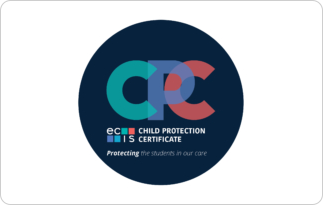Governance Foundations For International Schools
Leading Together
AVAILABLE FREE AS PART OF ECIS MEMBERSHIP
Governance Foundations course for International School Boards
This self-paced course builds a clear, shared understanding of effective governance in international schools, grounded in accreditation standards, principles of good practice and current research—with a strong emphasis on the board–head partnership.
WHO IT’S FOR
Board members (current or prospective)
Heads of school and senior leaders
Ex-officio/advisory board members and governance support staff
Anyone seeking a concise introduction to international-school governance
FEATURES AND ACCESS
Fully asynchronous; accessible on any device
12-month access + ECIS Certificate of Completion
ECIS membership includes complimentary registrations: 5 for Level 1, 10 for Level 2, and 15 for Level 3.

